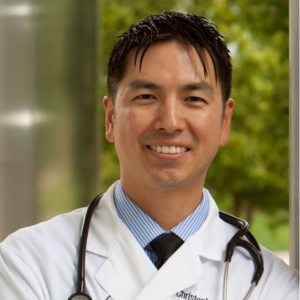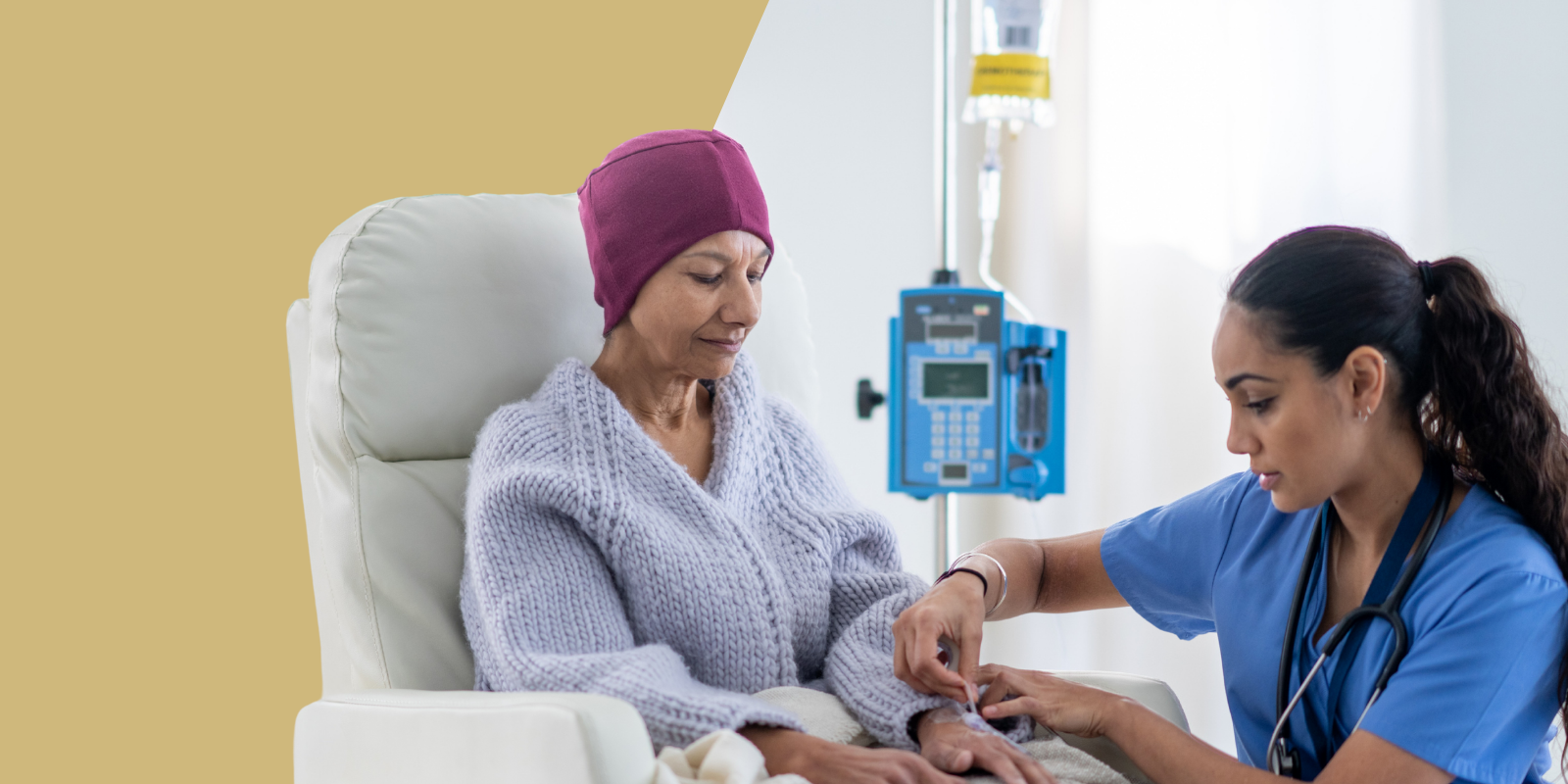Do you think James Van Der Beek’s announcement may serve as a wake-up call to younger people who might think colorectal cancer is something they don’t have to worry about?
It’s very courageous of James Van Der Beek to tell his story. By doing that, and him being young and apparently perfectly healthy otherwise, I think will save lives. Increasing awareness is a great thing. The more that people know about colorectal cancer, the better, because the earlier it’s diagnosed, the more likely it is that it can be cured.
What is colorectal cancer?
It’s a cancer that develops in the colon or rectum. It usually starts from a polyp that grows out of the intestinal lining. Over time that polyp can grow, and mutations can continue to accumulate, and then it can develop into an invasive cancer. You can get a colonoscopy to find a polyp and remove it. Obviously, the hope is that you find it before it turns into a cancer, or at an early stage, but sometimes we find it at a later stage.
How common is colorectal cancer in the United States? Are the numbers rising or falling?
This year alone, over 150,000 people will be newly diagnosed with colorectal cancer. There are over 1 million survivors of colorectal cancer living in the U.S. today, which is a phenomenal statistic.
While the total incidence of colorectal cancer is decreasing, particularly in our older population, we also know that since the 1980s or 1990s there has been a year-over-year increase in early-onset colorectal cancer, which is colorectal cancer diagnosed in young patients. Typically that’s defined as patients who are younger than the recommended age to start screening, which used to be 50, but because of the concerning rise in early-onset colorectal cancer, it’s now 45.
Do we know why the early-onset rate is rising?
The answer is no, even though there is a tremendous amount of research going into this. What we do know is that people who were born in the 1960s started to have a higher risk of developing colorectal cancer, and they’re carrying that risk with them even as they age. We call this the birth cohort effect. When you see a trend like that, you assume that this is something that develops over a long period of time, suggesting that there’s some type of environmental exposure.
The problem is, this can be a lot of different things. It can be potentially related to your diet, or even to bacteria that we carry in our gut. A lot of research is focused on the gut microbiome, which is the interaction between good bacteria and parasites in our intestines that help us digest food, and that's a good thing. But when that gut microbiome gets altered, it can cause inflammation, which can be a precursor to cancer. The gut microbiome has a lot of different effects, even on our body’s immune systems.
But it’s hard for scientists and researchers to point to one factor and say, “This is why the incidence of early-onset colorectal cancer is increasing.” It’s probably a host of factors over a long period of time.
What can we do to help reduce our risk?
One of the biggest things we can do is what we’re doing here, and that is increasing awareness, making sure that people are seeing their doctor regularly, that they have an active and healthy lifestyle and a healthy diet, and that when people develop concerning symptoms, to not ignore them.
What are some symptoms of colorectal cancer that people might notice?
Unfortunately, the symptoms can be quite vague. A lot of patients experience abdominal pain or fatigue. They also experience blood in their stool, and that’s a symptom that should never be ignored. The problem is that it’s probably more common than what we realize, and it’s easy to attribute it to something like hemorrhoids, but the key is just to make sure that you’re getting checked out by your doctor and to also understand that you’re never too young to have colorectal cancer.
That said, it’s important to remember that colorectal cancer in young patients is still rare. So even if you have those symptoms, it doesn’t necessarily mean that you have colorectal cancer. But it does mean that you need to see your doctor. Those symptoms should not be ignored, either by patients or their physicians. That way, in the rare event that it is cancer, you would find it at an earlier stage where the cure rates are much higher.
Are there risk factors that we should take into account?
The recommended screening age of 45 means for average-risk individuals. The risk is higher for people with a family history of colorectal cancer involving a first-degree relative – a parent, sibling, or child. That’s a huge one. There also are some hereditary risk factors, including Lynch syndrome, but they are rare. Knowing your family cancer history can help you determine whether you need to undergo screening earlier.
There are other factors attributed to the development of colorectal cancer, including obesity, heavy alcohol intake, a diet high in red meats or processed foods, and physical inactivity.
What are the available screening tests for colorectal cancer?
Colonoscopy is the gold standard of care, because it’s not only diagnostic, it’s also potentially preventative. But the old adage is, the best screening test is the one that gets done. You can test your stool for blood using a FIT test. There are also stool DNA tests for colorectal cancer. You can talk to your doctor about what other screening options there may be, but colonoscopy remains the standard.
→ CU Cancer Center Distributes FIT Tests for Colorectal Cancer at Community Events
If you’ve been diagnosed with colorectal cancer and you need the best care, what services are available to patients at the CU Anschutz Cancer Center?
We run a dedicated colorectal cancer multidisciplinary clinic that also specializes in young patients with early-onset colorectal cancer. This is where a team of physicians, advanced practice providers, geneticists, nutritionists, social workers, even fertility specialists, is formed around each patient. That team is there to make sure that a patient sees all the needed subspecialties in one day, which is really unique, and that we’re meeting each patient’s goals. We meet with the patient together, develop a treatment plan together, and make sure that even after just one day of appointments, a plan is in place and all the discussions with the relevant physicians and subspecialties have occurred.
Our five-year patient survival rates for colorectal cancer are higher than average at the CU Anschutz Cancer Center, and that reflects the level of care that’s provided, not just from physicians, but also from the broader team of people dedicated to helping patients.
Is there a need for more research on colorectal cancer?
This is an area that needs a tremendous amount of research. Research is being done on this campus, but we need to do more research to end colorectal cancer.




